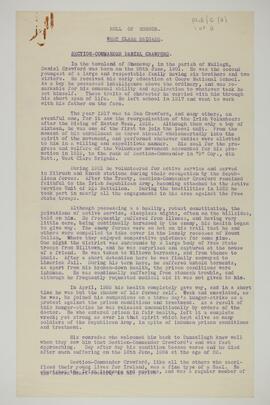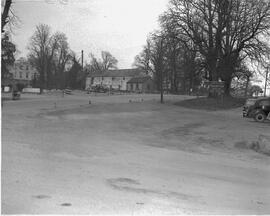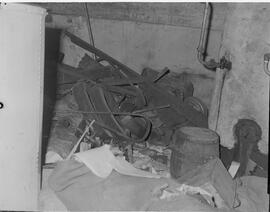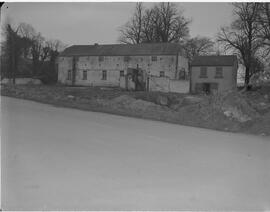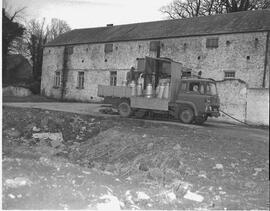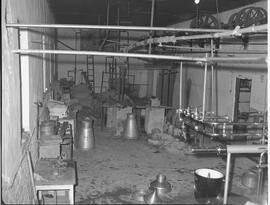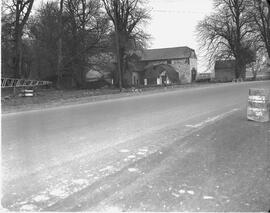Brief biographical accounts of Section Commander Daniel Crawford who died shortly after the Civil War from severe ill health owing to his wartime experiences which included a period on the run, a period in Limerick prison and a three-day hunger strike.
Twomey, Maurice (1897-1978), Irish Volunteer21st anniversary edition of CRC News, published by the Central Remedial Clinic, Dublin.
Looney, Timothy (Tim) (1914-1990), local historianBlack and white negative of the creamery chocolate crumb factory in Dromkeen.
Shannon DevelopmentBlack and white negative spares of the creamery chocolate crumb factory in Dromkeen.
Shannon DevelopmentBlack and white negative of the creamery at Bunratty Castle and Folk Village. Envelope notes the initials S.C.
Shannon DevelopmentBlack and white negative of the creamery at Bunratty Castle and Folk Village. Envelope notes the initials S.C.
Shannon DevelopmentBlack and white negative of the creamery at Bunratty Castle and Folk Village. Envelope notes the initials S.C.
Shannon DevelopmentBlack and white negative of the creamery at Bunratty Castle and Folk Village. Envelope notes the initials S.C.
Shannon DevelopmentBlack and white negative of the creamery at Bunratty Castle and Folk Village.
Shannon DevelopmentBlack and white negative of the creamery at Bunratty Castle and Folk Village. Envelope notes the initials S.C.
Shannon Development